
Animal
16:47, 09-May-2019
Places to see endangered South China tigers
Updated
17:11, 09-May-2019
By Ding Qian
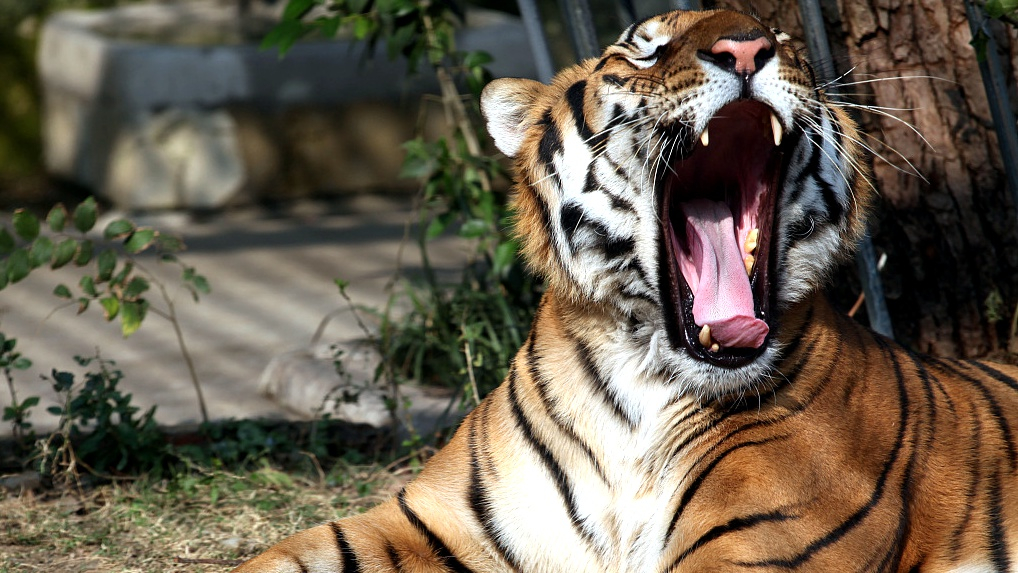
In March, six South China tiger cubs were born at the Wangcheng Park Zoo in Luoyang city, central China's Henan Province. It was big news as there are only about 177 of them existing on the planet, and they are all in captivity.
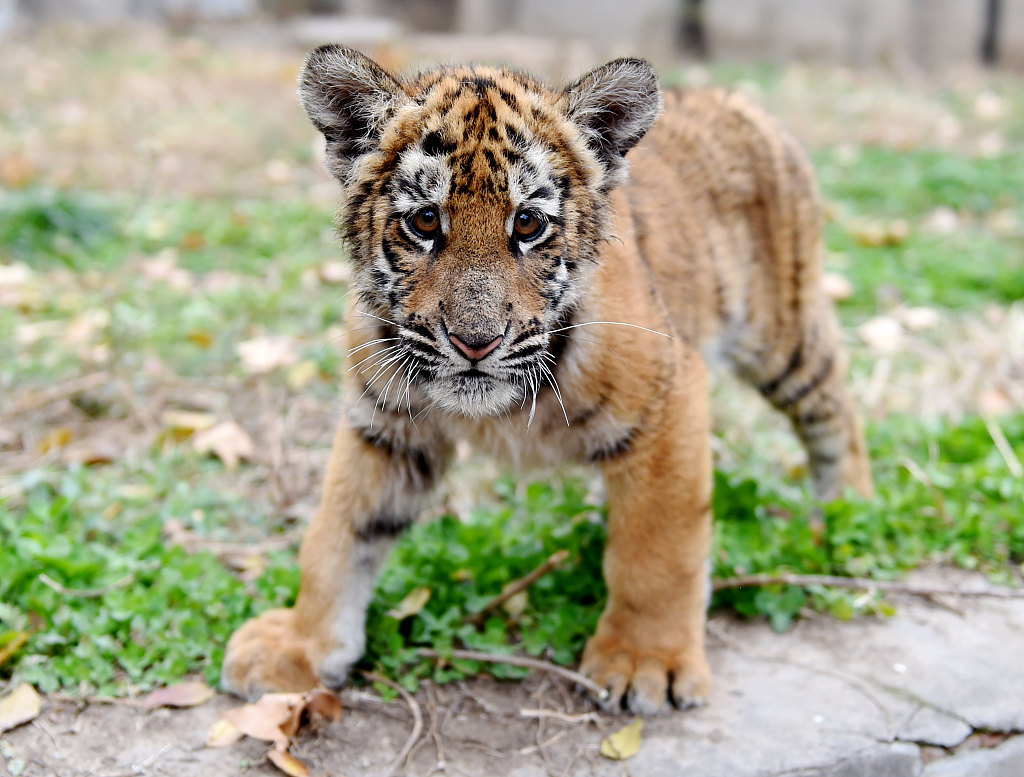
A tiger at the Wangcheng Park Zoo in Luoyang city, China. /VCG Photo
A tiger at the Wangcheng Park Zoo in Luoyang city, China. /VCG Photo
Unfortunately, wild South China tigers haven't been sighted for decades. Due to the massive poaching and loss of habitat, the International Union for Conservation of Nature (IUCN) listed the species under "critically endangered" category.
Today, we can only see these beautiful felines with unique patterns at zoos and breeding centers in China.
Here are some places you can get a glimpse of these critically endangered animals.
Wangcheng Park Zoo
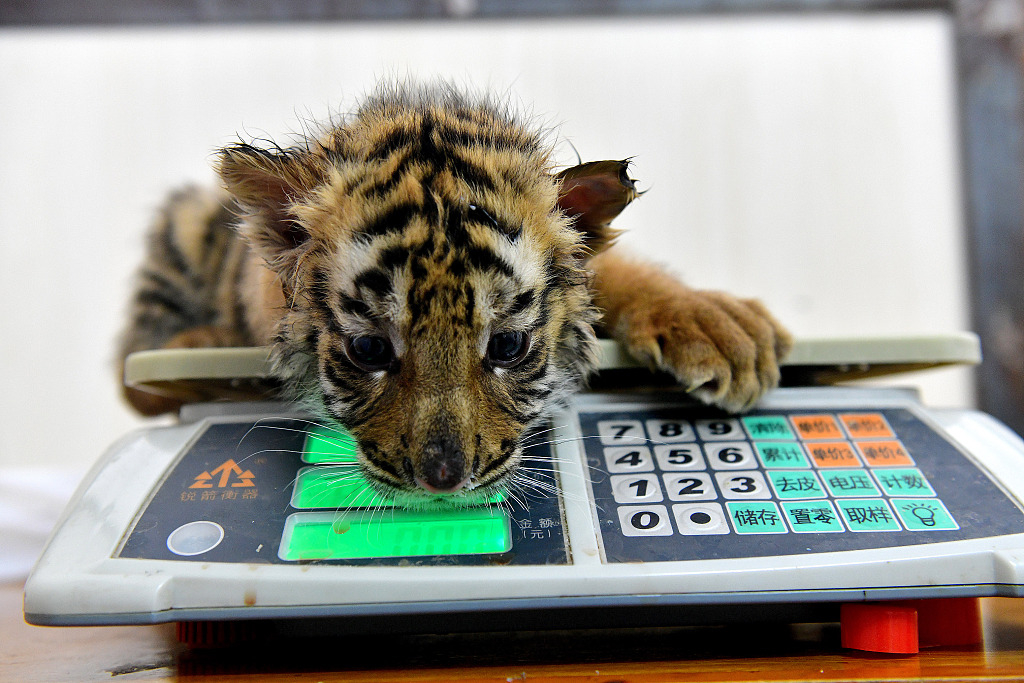
A South China tiger cub at the Wangcheng Park Zoo in Luoyang city, China. /VCG Photo
A South China tiger cub at the Wangcheng Park Zoo in Luoyang city, China. /VCG Photo
Located in Luoyang City, central China's Henan Province, the zoo is now home to the largest population of South China tigers in China, with 38 in total. Besides the South China tigers, there are other rare animals including the Siberian tiger, black bear, brown bear, and red-crowned crane.
Shanghai Zoo
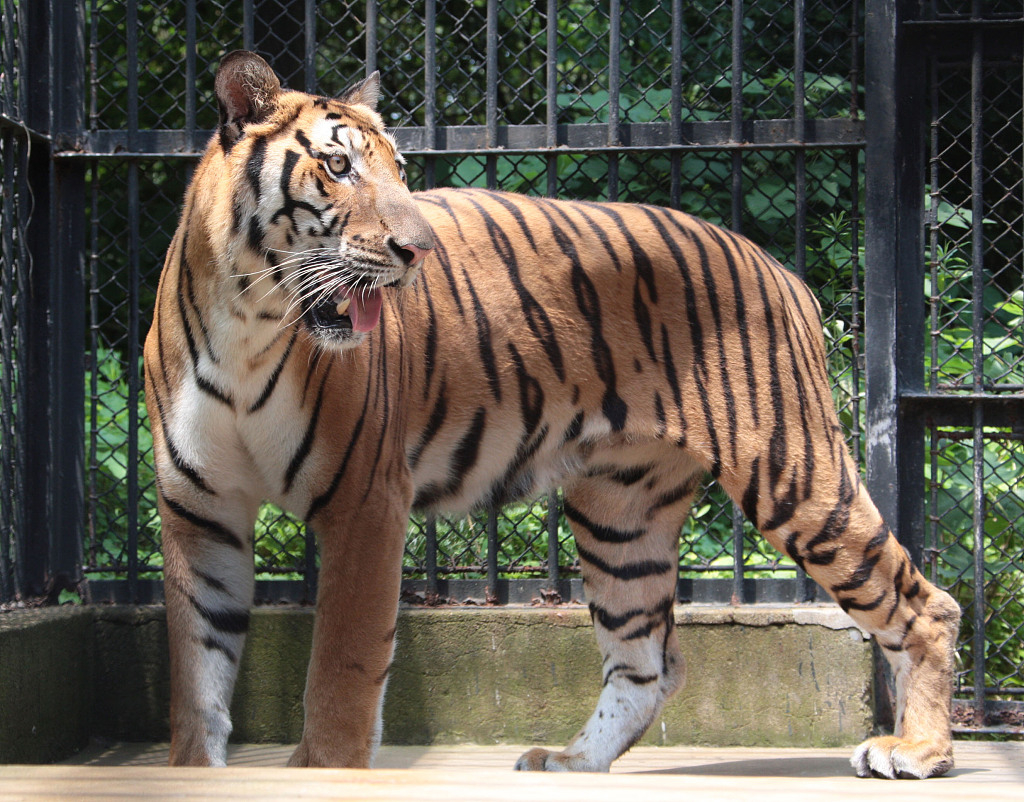
A South China tiger living at Shanghai Zoo. /VCG Photo
A South China tiger living at Shanghai Zoo. /VCG Photo
The Shanghai Zoo has bred over 100 south China tigers since 1958, the first breeding here was reported in 1959.
Also, the Shanghai Zoo raises and breeds Bengal tigers, Siberian tigers, lions, leopards, and other big cats.
Suzhou South China Tiger Breeding Base
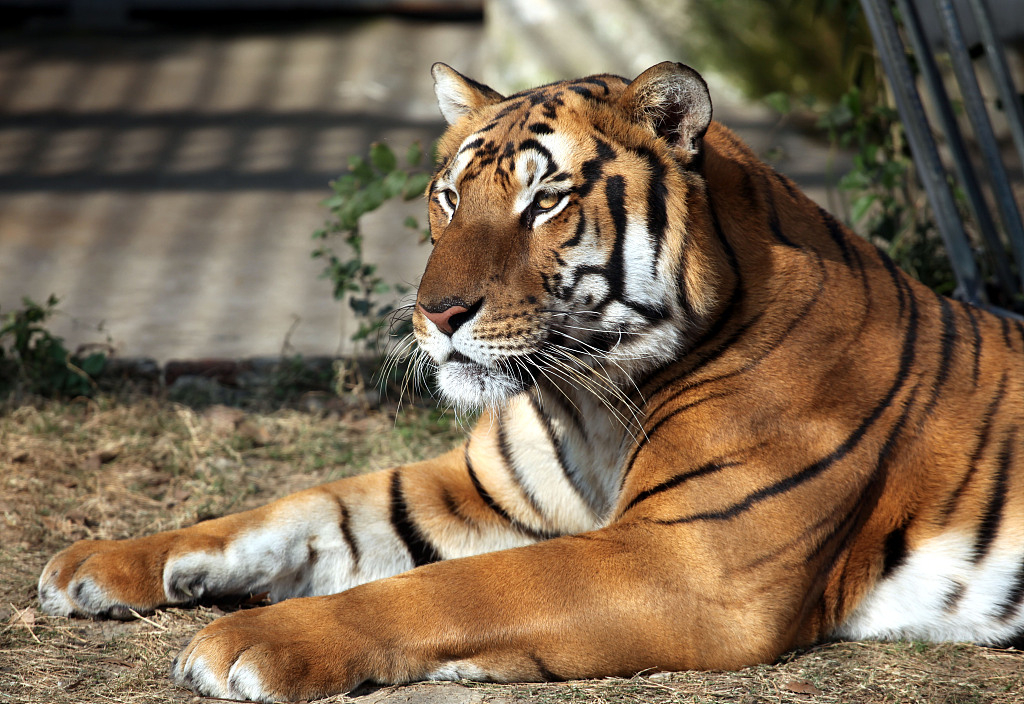
A tiger is resting in Suzhou South China Tiger Breeding Base. /VCG Photo
A tiger is resting in Suzhou South China Tiger Breeding Base. /VCG Photo
The base is located in east China's Jiangsu Province with around 14 South China tigers. It's surrounded by mountains and jungles on three sides, completely imitating the wild habitat environment.
There are exhibition area, enclosed breeding area, quarantine, nursery, scientific research office area and so on.
Guangzhou Zoo
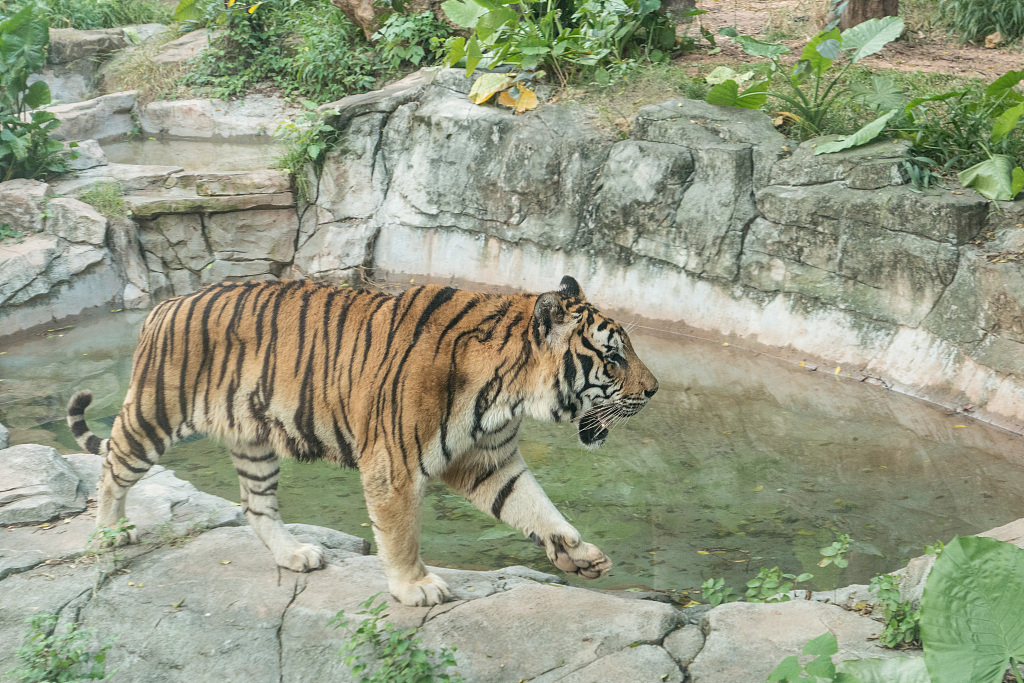
A South China tiger at Guangzhou Zoo, China. /VCG Photo
A South China tiger at Guangzhou Zoo, China. /VCG Photo
On December 22 of 2018, dry powder of DNA from a South China tiger of the Guangzhou Zoo was blasted into space by the Long March 11 carrier rocket. The launch was made for backup storage of the genes of this endangered species.

The South China tiger Kang Kang, whose DNA was sent into space for backup storage. /Chinadaily Photo
The South China tiger Kang Kang, whose DNA was sent into space for backup storage. /Chinadaily Photo
Guangzhou Zoo located in Guangdong Province is one of the three largest city zoos in China. The zoo has more than 450 species of mammals, reptiles, birds, fish and other animals, many of which are rare. Besides the South China tiger, other animals under state protection at the zoo include giant pandas, golden monkeys, and black-necked cranes.
Meihua Mountain South China Tiger Breeding Base
Located in Fujian Province, Meihua Mountain is known as the home of South China tigers, because a large number of the species were discovered in the region. Since 2000, around 27 South China tigers have been successfully bred naturally in the base, and the tiger population keeps increasing.
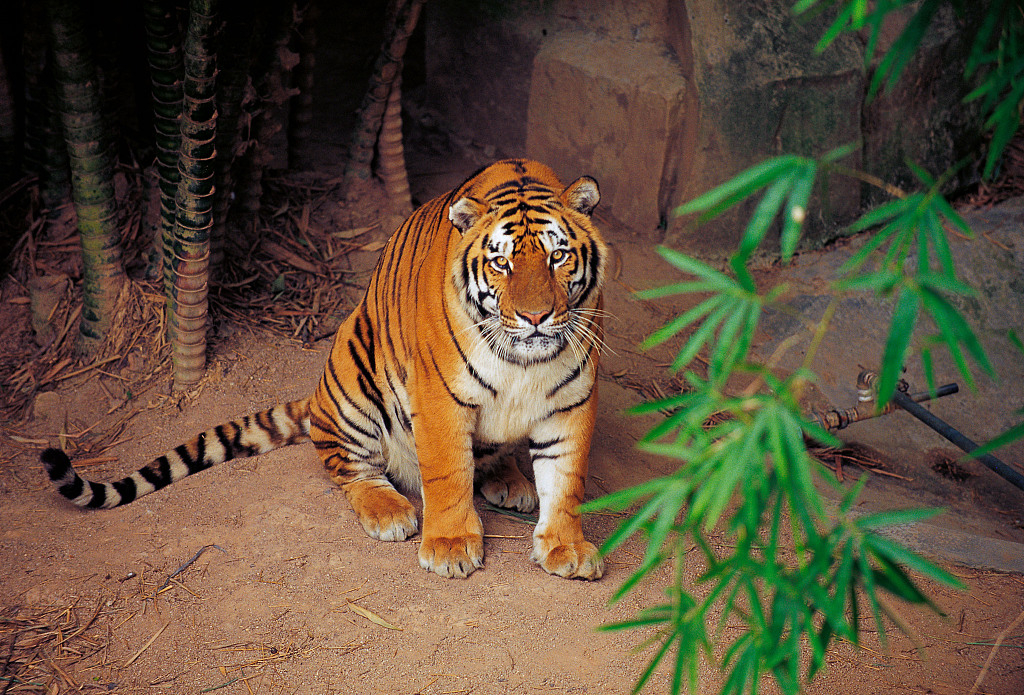
South China tiger is in dire condition. /VCG Photo
South China tiger is in dire condition. /VCG Photo
Although the population of the South China tiger is growing, all of them are offsprings of six wild south China tigers, significantly reducing the genetic diversity of the species. As a result, these cubs have a high risk of developing genetic diseases. Many of these south China tiger cubs have strabismus, facial deformities, decreased breeding capability and shortened life span.
Currently, scientists are studying how to maximize the genetic diversity of the South China tiger in order to preserve the species.
For more information about the South China tiger, you can check Facts about critically endangered South China tiger
(Top images via VCG)
(If you want to contribute and have specific expertise, please contact us at nature@cgtn.com.)

SITEMAP
Copyright © 2018 CGTN. Beijing ICP prepared NO.16065310-3
Copyright © 2018 CGTN. Beijing ICP prepared NO.16065310-3